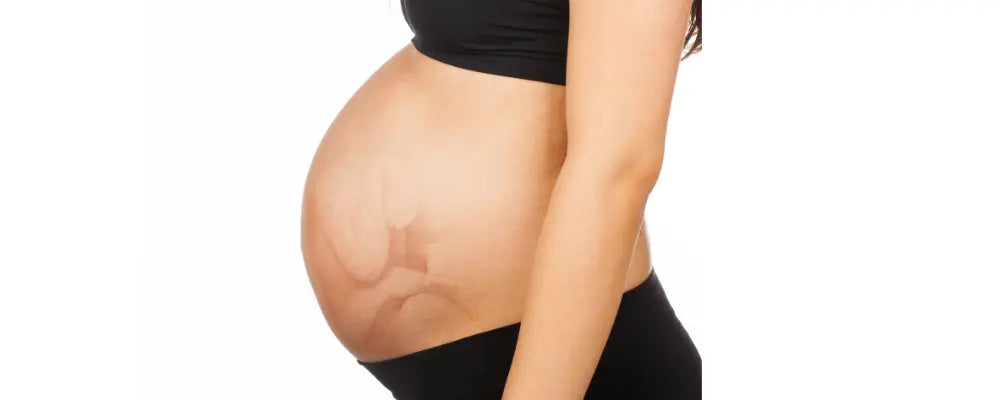In the pregnancy journey, the baby's movement in the womb holds profound significance. As expectant mothers approach the eighth and ninth months, around 36 weeks pregnant, observing these movements becomes particularly poignant. These months mark when the character and frequency of baby movements undergo noticeable changes, reflecting the baby's growth and readiness for birth. Understanding what constitutes standard movement patterns during this crucial period is essential for monitoring fetal well-being and preparing for the arrival of your child. Let's delve deeper into the intricacies of baby movement in pregnancy, exploring what to expect during the eighth month and how it evolves into the ninth, ensuring you're well-equipped to interpret and respond to these vital signals of your baby's health.
8th Month of Pregnancy Baby Movements:
As you enter the 8th month of pregnancy baby movements, around 32 weeks, your baby's movements may change in character and frequency. At this stage, the baby has less room to move freely due to the growing size of the uterus. Movements might feel more like stretching and rolling rather than sharp kicks or punches. Despite the reduced space, babies continue to be active, and you should still feel regular movement throughout the day.
Changes in Baby movement in 9th month:
By the ninth month, around 36 weeks, your baby's movements can feel different again. As the due date approaches, the baby tends to settle into a head-down position in preparation for birth. This positioning might lead to less vigorous movements but more noticeable stretches and squirms as the baby adjusts to limited space. Keeping track of these movements is essential to ensure your baby's well-being.
Monitoring Baby Movements: What to Expect:
Doctors recommend monitoring fetal movement throughout the eighth and ninth months of pregnancy as a crucial indicator of fetal health. Here’s what to keep in mind:
- Kick Counts: Doctors often advise counting your baby's kicks or movements daily. A typical guideline is to note at least 10 movements within two hours.
- Pattern Recognition: Understanding your baby's movement pattern is essential. While each baby has a unique pattern, deviations from what is normal might indicate a need for further evaluation.
- Quality over Quantity: It's not just about counting kicks but also considering the quality of movements. Movements should be consistent and robust. Changes in the intensity or frequency of movements should be reported to your healthcare provider.
Factors Influencing Baby Movements:
Several factors can influence how and when your baby moves during pregnancy:
- Positioning: As your baby grows, their position in the uterus can affect the type and frequency of movements you feel.
- Activity and Rest Cycles: Babies, like adults, have periods of activity and rest. You may notice your baby is more active after you eat or when you're in a particular position.
- Environmental Stimuli: Loud noises or sudden movements can sometimes elicit a response from the baby, leading to temporary increases in movement.
Importance of Reporting Changes:
While some changes in fetal movement are regular as pregnancy progresses, specific changes may warrant medical attention:
- Decreased Movements: A noticeable decrease in your baby movement in pregnancy or a significant change in their pattern should be reported promptly to your healthcare provider.
- Sudden Increase in Movements: Abrupt increases in baby movement in pregnancy, especially accompanied by other symptoms like pain or bleeding, could indicate distress and require immediate medical evaluation.
- Consistency: Trust your instincts. If you feel something is off or different about your baby's movements, it's better to consult with your healthcare provider for reassurance.
Preparing for Birth:
As you near your due date, paying attention to your baby movement in womb not only helps monitor their well-being but also prepares you mentally for labour and delivery:
- Bonding: Feeling your baby move is a unique bonding experience that can help you feel more connected to your growing child.
- Anticipation: Recognizing your baby movement in womb can prepare you for what to expect during labour as you become familiar with your baby's behaviours and movements.
Important Note - During pregnancy, expecting mothers face numerous decisions, and choosing the right diapers for their baby is one of them. Cloth diapers offer many colours, patterns, and designs, enabling parents to customise their baby's diaper appearance. They are portable and can be stored in a Waterproof Travel Bag, ensuring easy accessibility whenever necessary.
Key Takeaways:
- Track your baby movement in womb daily, especially in the last trimester. Learn what is normal for your baby regarding movement patterns and report any deviations.
- Don't hesitate to contact your healthcare provider if you notice significant changes in your baby's movements. Paying attention to your baby's movements fosters a deeper emotional connection and prepares you for labour.
- Understanding and monitoring your baby movement in 9th month of pregnancy and ninth months of pregnancy are crucial to ensuring a healthy delivery and a smooth transition into parenthood. By staying informed and attentive, you can confidently navigate this final stage of pregnancy.
FAQs:
- What should I expect regarding baby movement during the eighth month of pregnancy?
Ans. During the eighth month (around 32 weeks), you may notice changes in how your baby moves. Movements may feel more like stretching and rolling due to limited uterine space.
- How will the baby movement in 9th month pregnancy (36 weeks pregnant baby movement)?
Ans. As your baby prepares for birth in the ninth month (36 weeks pregnant baby movement), movements may become less vigorous but more pronounced as the baby adjusts to a head-down position.
- How often should I feel my baby movement in 9th month of pregnancy and baby movement in 9th month of pregnancy?
Ans. Doctors often recommend monitoring for at least 10 movements within two hours daily. Knowing your baby's regular pattern is crucial.


